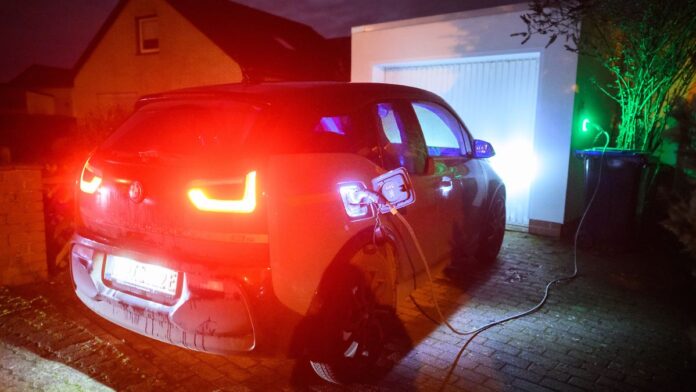Shop infrastructure is missing
Tenants in particular refuse to buy electric cars
September 29, 2024, 1:06 a.m
Politicians’ hopes for widespread growth in electric cars often fail due to the infrastructure. A survey shows that tenants in particular cannot imagine purchasing something because there are no parking spaces with charging stations. However, half of homeowners don’t want to know anything about an electric car.
In Germany, apartment tenants in particular are currently avoiding electric cars. This emerges from a representative survey by the comparison portal Verivox, which is available to the newspapers of the Funke media group. According to this, a good 22 percent of homeowners in Germany currently drive an electric car. For tenants it is only 8 percent. The charging options in particular are a factor in this: according to the survey, only 4 percent of tenants in Germany could charge an electric car cheaply privately. The rest rely on charging at public charging stations, which is usually more expensive.
In principle, tenants with a contractually guaranteed parking space have had a legal right to a charging option for their private electric car since December 2020. However, there are hardly any private parking spaces in existing tenancies: 60 percent of the tenants surveyed do not have any private parking spaces. One in four (25 percent) stated that they had private parking that could be equipped with a wallbox. As of today, however, only 4 percent of renters can charge an electric car using a private charging device.
Owners, on the other hand, have an advantage in this regard: a good one in five (21 percent) said they already had access to a private parking space equipped with a wallbox. 57 percent have a private parking space that could be equipped with a charging station. Only one in six owners (16 percent) does not yet have private parking facilities. Charging your electric car at home instead of relying on public charging stations – this also has a noticeable impact on your own wallet. As Verivox has calculated, charging electric cars in public was up to 79 percent more expensive in the first half of 2024 than refueling at your home wallbox.
High electricity costs at public charging stations
Private charging costs in the first half of 2024 were 863 euros – with an annual mileage of 12,000 kilometers and an average household electricity price of 35.96 cents/kWh. At public charging stations, the average kilowatt hour price was 54.25 cents/kWh (normal charging with alternating current) or 64.44 cents/kWh (fast charging with direct current). This corresponded to charging costs of 1302 euros and 1547 euros respectively.
Experts now also see politics as having a duty. “The broad-based switch to electromobility can only be achieved if everyone can participate equally. The federal government must create the appropriate framework conditions here, such as re-providing government subsidies for private charging stations and regulating public charging station prices,” said Thorsten Storck, energy expert at Verivox. Given the existing conditions, it is hardly surprising that tenants currently have little desire to buy an electric car.
In fact, the majority of renters (71 percent) have no plans to purchase. Only one in five (21 percent) plans to buy an electric car, and just over one in twelve renters (8 percent) already drives one. Homeowners are almost three times more likely to own an electric car (22 percent). 30 percent of the owners surveyed are planning to buy. But here too, almost half (48 percent) are of the opinion that purchasing one is currently out of the question for them.

